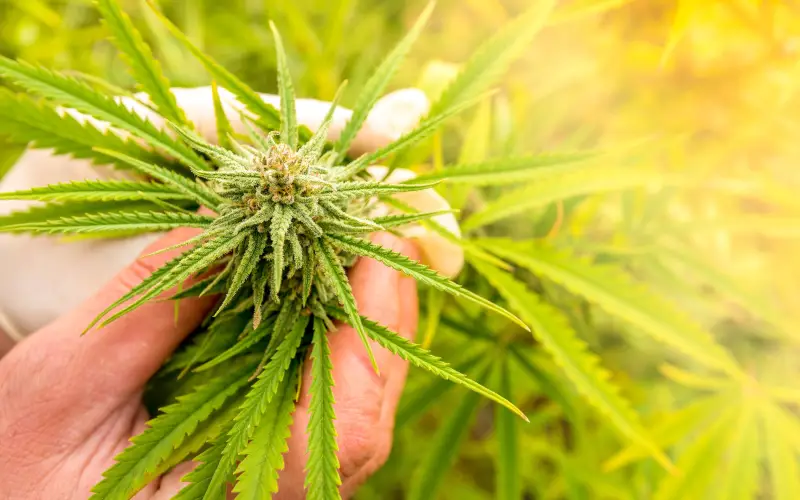Connect with us
Published
4 months agoon

The wave of legalization that has swept over the United States in the last decade has coincided with a swell in published research on cannabis.
That is the finding unearthed by the marijuana advocacy group NORML this week.
Citing the results of a keyword search of the the National Library of Medicine/PubMed.gov website, NORML said that, for the third year in a row, “researchers worldwide published over 4,000 scientific papers specific to cannabis, its active constituents, and their effects.”
“Over the past decade, there has been a dramatic increase in scientific inquiries about the cannabis plant — with researchers publishing more than 32,000 scientific papers about cannabis since the beginning of 2013. Much of this uptick is a result of researchers’ newfound focus on marijuana’s therapeutic activities as well investigations into the real-world effects of legalization laws,” NORML said.
According to NORML, “more than 70 percent of all peer-reviewed scientific papers about marijuana have been published in the past ten years, and over 90 percent of this literature has been published since 2002.”
“As of this writing, PubMed.gov cites over 45,900 scientific papers on marijuana dating back to the year 1840. Available to the public online since 1996, PubMed is a free resource supporting the search and retrieval of biomedical and life sciences literature,” the organization added.
NORML’s Deputy Director Paul Armentano said that the finding refutes critics who argue that there is insufficient research on cannabis.
“Despite claims by some that marijuana has yet to be subject to adequate scientific scrutiny, scientists’ interest in studying cannabis has increased exponentially in recent years, as has our understanding of the plant, its active constituents, their mechanisms of action, and their effects on both the user and upon society,” Armentano said in a statement. “It is time for politicians and others to stop assessing cannabis through the lens of ‘what we don’t know’ and instead start engaging in evidence-based discussions about marijuana and marijuana reform policies that are indicative of all that we do know.”
It seems that each week brings a fresh study on marijuana, and its effects on the mind and body. And not all of the findings provided support to marijuana advocates.
One such study, published last month, found scant evidence that using cannabis can help addicts reduce or stop their long-term intake of illicit opioids.
The study out of Australia involved more than 600 heroin addicts, and spanned 20 years.
“Cannabis use is common among individuals with opioid use disorder, but it remains unclear whether cannabis use is associated with an increase or a reduction in illicit opioid use. To overcome limitations identified in previous longitudinal studies with limited follow-ups, the authors examined a within-person reciprocal relationship between cannabis and heroin use at several follow-ups over 18 to 20 years,” the researchers wrote in their introduction.
“After accounting for a range of demographic variables, other substance use, and mental and physical health measures, an increase in cannabis use 24 months after baseline was significantly associated with an increase in heroin use at 36 months (estimate=0.21, SE=0.10). Additionally, an increase in heroin use at 3 months and 24 months was significantly associated with a decrease in cannabis use at 12 months (estimate=?0.27, SE=0.09) and 36 months (estimate=?0.22, SE=0.08). All other cross-lagged associations were not significant,” they said, in detailing their findings.
While the study produced “some evidence of a significant relationship between cannabis and heroin use at earlier follow-ups,” the researchers noted that it was “sparse and inconsistent across time points.”
“Overall, there was insufficient evidence to suggest a unidirectional or bidirectional relationship between the use of these substances,” they said.
Another study, also published in November, explored whether or not cannabis is a psychedelic substance. The answer, it turns out, isn’t so simple.
“Cannabis and classic psychedelics are controlled substances with emerging evidence of efficacy in the treatment of a variety of psychiatric illnesses. Cannabis has largely not been regarded as having psychedelic effects in contemporary literature, despite many examples of historical use along with classic psychedelics to attain altered states of consciousness,” the researchers said.
“Research into the ‘psychedelic’ effects of cannabis, and delta-9-tetrahydrocannabinol (THC) in particular, could prove helpful for assessing potential therapeutic indications and elucidating the mechanism of action of both cannabis and classic psychedelics. This review aggregates and evaluates the literature assessing the capacity of cannabis to yield the perceptual changes, aversiveness, and mystical experiences more typically associated with classic psychedelics such as psilocybin. This review also provides a brief contrast of neuroimaging findings associated with the acute effects of cannabis and psychedelics. The available evidence suggests that high-THC cannabis may be able to elicit psychedelic effects, but that these effects may not have been observed in recent controlled research studies due to the doses, set, and settings commonly used.”
They added, “Research is needed to investigate the effects of high doses of THC in the context utilized in therapeutic studies of psychedelics aimed to occasion psychedelic and/or therapeutic experiences. If cannabis can reliably generate psychedelic experiences under these conditions, high-THC dose cannabis treatments should be explored as potential adjunctive treatments for psychiatric disorders and be considered as an active comparator in clinical trials involving traditional psychedelic medications.”


Study Reveals State Cannabis Legalization Lowers Immigrant Deportation


DEA Challenges Bid To Use Psilocybin Under ‘Right To Try’ Legislation


Vegans Rejoice as Farmers Switch from Chickens to Hemp


Louisiana Legislative Committee Unanimously Passes Adult-Use Cannabis Framework Bill


Louisiana House Bill to Regulate Hemp Products Advances Along With Senate Bill to Ban


Cresco Labs Workers Reportedly De-Unionize
